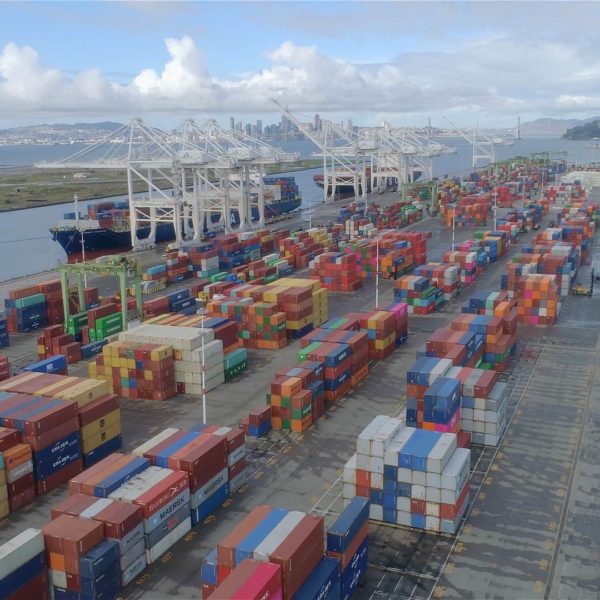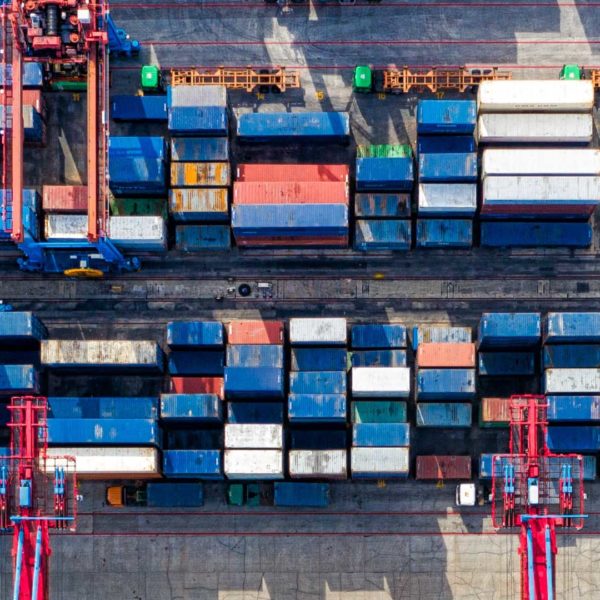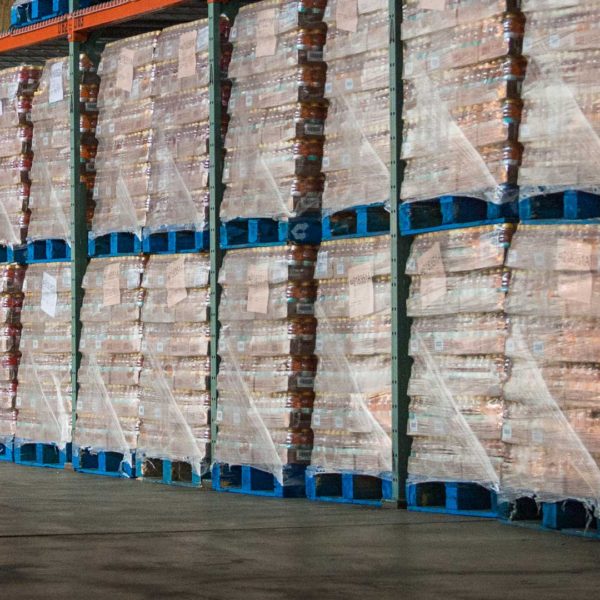How to find a Transportation and Logistics Partner for your supply chain
Managing a supply chain can be incredibly challenging, especially in a year such as 2020. Here’s some of the top tips for how to find a Transportation and Logistics Partner for your supply chain
Maintaining inventory at appropriate levels, working with suppliers across the world, securing transportation capacity and working with logistics partners to get your freight moving requires constant communication and problem solving. Working with good carriers, warehousing providers, freight forwarders, intermodal providers and 3pls can provide a substantial benefit to any supply chain. You gain the expertise of highly skilled and experienced teams, leverage pricing relations and in general, improve the efficiency of your supply chain while reducing costs and perhaps more importantly reduce errors and the amount of time needed to keep your supply chain functioning. It can be tough to pick the right logistics and supply chain partners for your business’s needs.
Here are some of the most considerations to keep in mind when choosing what logistics partner you should work with.
Network and Capabilities
The most efficient supply chains clearly map out and diagram their supply chains from start to finish, as a first step to optimizing and building procedures for each step. This is a great way to see exactly what’s needed to keep the supply chain operating and potential issues you might run into. As you map out your supply chain, you’ll see what types of logistics solutions and services are needed, which will be a first step towards deciding what logistics partners, you want to work it.
While many logistics firms offer a wide variety of services, most specialize in certain niches with optimized focus and orientation towards providing certain types of logistics services or focusing on certain geographic areas and lanes. The more complex a supply chain is, and the larger it is, the more efficiency will be created by utilizing a wide variety of logistics providers based on services needed and geographic location. Firms such as Nike have highly diverse supply chains and utilize many logistics partners for different pieces to their overall operation.
Make a detailed list of the types of services needed, and where those services will be carried out with particular attention paid to freight lanes and any cross border shipping needs.
Customer Service and Transparency
Attentive customer service is a major priority in the logistics and supply chain industry, with shipment values often being quite high, and the importance of critical inventory or parts delivered on time, you absolutely need to make sure your logistics partners value customer service as much as you do.
The entire point of working with supply chain partners is to reduce your time and expense in managing a supply chain, and poor customer service often will result in the exact opposite outcome. If you are constantly finding yourself putting out spot fires that are a result of mistakes or poor communication from anyone within your supply chain you need to start planning alternative partners asap.
Problem-solving and communication is also absolutely critical, something will at some point go wrong within your supply chain, it is just the nature of the industry, and as shipment complexity goes up, so does the probability of a potential issue. While issues will happen, you want to be sure that your supply chain partner will be communicative, candid, and prioritize fixing any issues that do pop up.
If you are working directly with carriers, you need to check out their safety record. This is often a quick red flag for questionable supply chain partners that you probably don’t want to be relying on. Most supply chain partners and carriers with great customer service and responsive teams have a solid safety record and take pride in showing off their record.
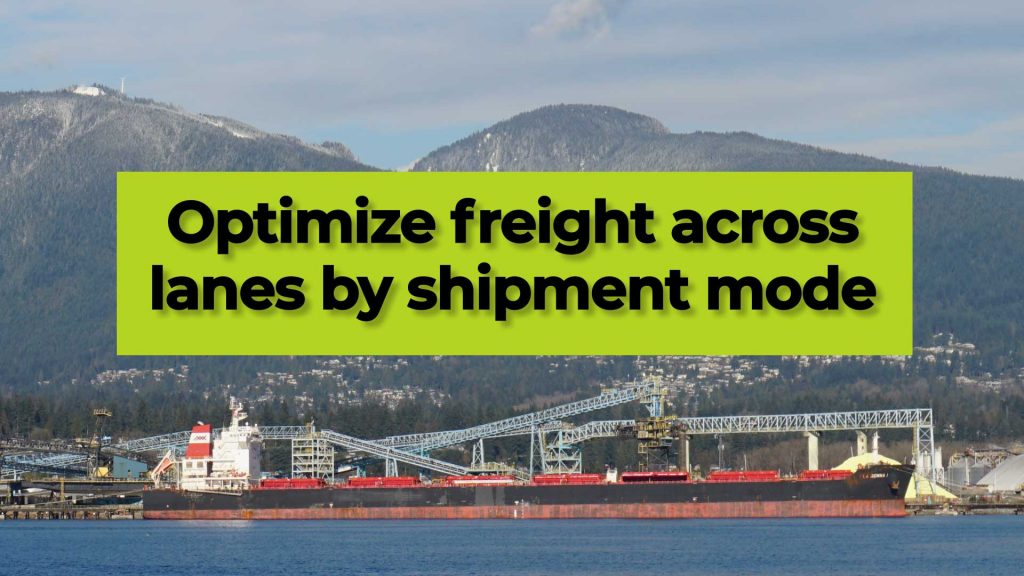
Mode Optimization
One of the most important strategies for reducing supply chain cost and risk is optimizing mode selection based on inventory time demand and lanes. Many logistics partners prefer to handle shipments in one mode, and thus tend to move all their customer’s freight on a particular mode, while this is ok, it isn’t unlocking the full value of supply chain offerings. Consider diversifying mode selection on various lanes. This also prevents situations where there is simply no capacity on a certain transportation type, in a certain area during a peak season rush for example.
Splitting freight between air and ocean for international and intermodal rail and truck for domestic is a prime method for hedging costs as well as capacity. Work with suppliers to order inventory earlier than ship via ocean for drastically reduced freight costs.
For domestic freight, intermodal is generally 10-25% more cost effective on lanes longer than 500 miles and provides capacity at times when trucks are priced exorbitantly and capacity is low. Intermodal can be accessed via spot rates or contract rates just like over the road trucking. We’ve worked with numerous customers that have converted a large portion of cross country or long haul freight to intermodal and seen drastic cost reductions coupled with a 1-2 day increase in shipment time, which is generally well with it, considering the cost reduction.
If you ship a lot of parcel or LTL, make sure to work with carriers or 3pl that have a strong LTL division. Leverage your volume to negotiate the rate and accessorial discounts as carriers release new pricing. So many shippers miss out on lower parcel freight pricing simply because they don’t realize that negotiating their price is even an option. Also, one LTL carrier does not fit every need or route. We always recommend developing partnerships with multiple LTL carriers, as different carriers have different network strengths. Regional LTL carriers are also highly competitive against the larger national carriers within their network reach. You are missing out if you don’t benchmark.
Keep in mind that while the lowest price is nice, often you get what you pay for. While generally, we don’t recommend going with the most expensive options unless there are very special circumstances, often though, going with the lowest priced carriers present some problems in the future. Whether it is lack of communication, lack of tracking, safety or service issues, almost every time we’ve made that choice, something has happened over time that has made that choice a mistake and more expensive in the long run. Seek to build relationships with multiple carriers and leverage volume to negotiate rates.
Technology
Supply Chain technology is disrupting many aspects of the legacy supply chain industry. Technology is wide-ranging and is being quickly adopted by many players in the suppler chain industry to solve a multitude of problems.
Generally, the better supply chain and logistics providers offer select tech solutions that make doing business with them easier. Technology will reduce the amount of time you spend on the phone, reduce “unknowns” such as shipment location and reduce the time spent quoting.
For example, Zmodal utilizes a range of technology, much of which is built into our dashboard, to make managing your supply chain and freight with us as easy as possible. This includes an easy to use web dashboard that makes searching routes, requesting and analyzing quotes, document management, shipment tracking, shipment/freight analytics, billing and customer support through our chat system as easy and hassle-free as it can possibly be. Other technologies such as TMS systems, warehouse and inventory management systems also give shippers solutions along with dashboards like Zmodals, which will reduce time spent managing freight and error rates while allowing shippers to make more informed data-based decisions from analytics.
In short, make any supply chain partners you are working with have the technologies needed to make managing freight easier than relying on emails and phone calls!
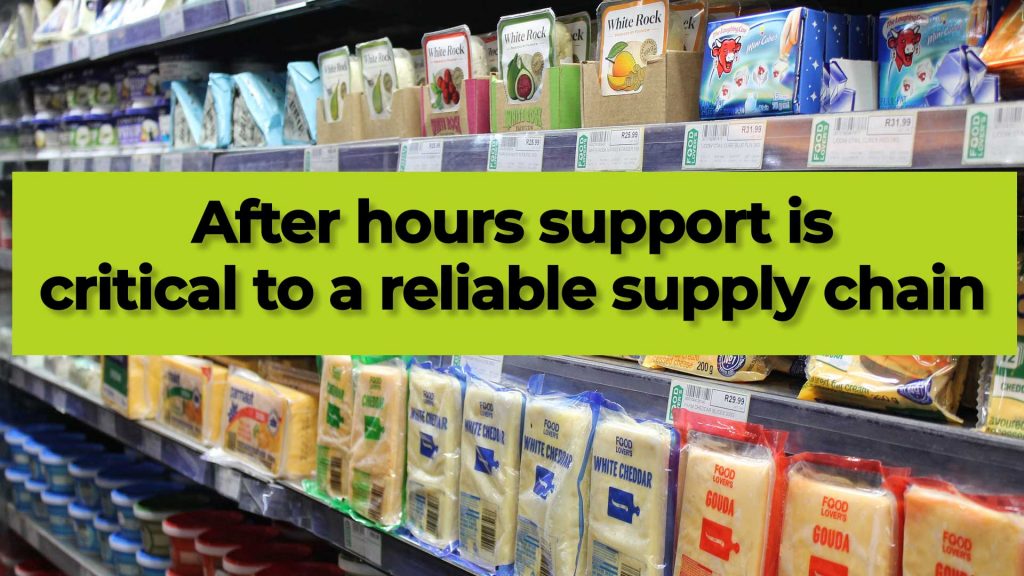
Around the Clock Support
Your supply chain doesn’t stop at 4 pm on a Friday and neither should your logistics and supply chain partners. Supply chains and freight stay moving 24/7 365 days a year for the most part. When something needs attention it shouldn’t matter whether it’s at night, on a weekend or holiday, it simply needs to be taken care of and quickly. Any supply chain partner you work with should have support outside of normal business hours because inevitably if something goes wrong, it’s outside of normal operating hours. Around the clock support and responses should be expected whether by email, phone or online chat.
Emphasis on Goals
Your supply chain vendors and providers should be more than simple transactional relationships, they need to be full-on partners to your supply chain and company goals. The best logistics and supply chain partners work with you to further the goals you have within your firm. Taking the time to understand your challenges, system layout, long term and short term goals put them in a position to best provide advice and suggestions as well as engineer solutions that best fit your needs.
Sustainability, in general, has become an increasingly important focus for many supply chains globally, with an emphasis on reducing supply chain carbon emissions, using less electricity, fuel, reducing packing in general as well as utilizing more recycled or paper based packaging. Firms are seeking to create more environmentally friendly green supply chains, often in the long term, more sustainable supply chains are actually more cost-efficient than traditional supply chain practices. If sustainability is a priority for your firm, make this a topic of conversation as you engage with current suppliers, vendors as well as potential supply chain partners.
About Zmodal
Zmodal is a digital logistics provider with easy access to North American trucking and intermodal rail service options all through our easy to use dashboard. Search routes, pricing, and book a load within minutes, all while featuring data analytics, digital document management, 24/7 support, and full shipment visibility. We prioritize customer relationships and supply chain optimization to make your supply chain more cost-effective and reliable!

